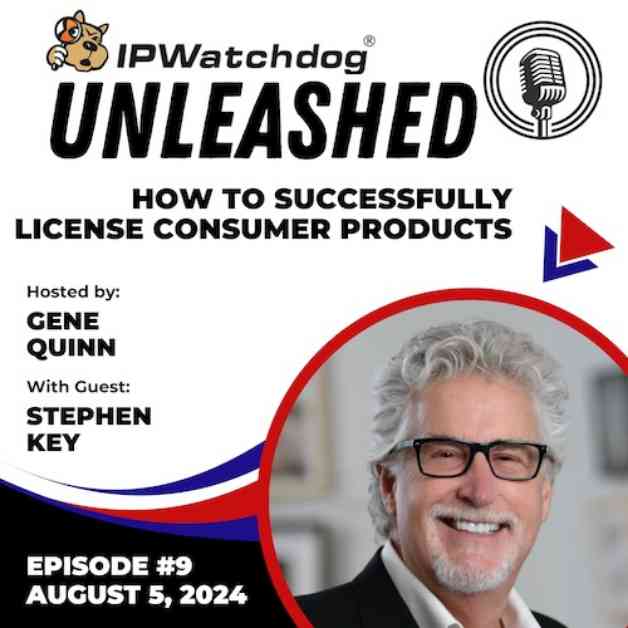In our discussion this week, we delve into the realm of product licensing, specifically focusing on the licensing of consumer products. The insights shared may surprise many patent practitioners and innovators in the high-tech and life sciences industries.
I had the pleasure of speaking with Stephen Key, an inventor, entrepreneur, author, and the founder of InventRight. This coaching company assists independent inventors and startups in learning how to license their inventions and ideas to industry. What sets Stephen apart is his success as an inventor who has licensed many of his own creations. He even had to engage in patent litigation against an infringer in the past.
Over the years, I’ve observed Stephen’s impeccable reputation in the industry. The inventors he collaborates with hold him in high regard, and many of them achieve significant financial success through licensing, as we explore in our conversation.
It’s always enlightening to converse with Stephen, especially in a time when the patent and innovation sector faces challenges due to policy and legal decisions. Despite these obstacles, Stephen highlights a segment of the industry that continues to thrive and operate effectively.
For inventors of consumer products, there are reputable companies actively seeking new inventions and ideas to bring to market. These companies specialize in launching products repeatedly and are constantly on the lookout for fresh concepts and enhancements. They understand the importance of swift market entry to capitalize on the limited lifespan of many products, making them open to deals that expedite the commercialization process and ensure inventors receive compensation.
Interestingly, there exists a dichotomy in the patent and innovation landscape. Inventors with potentially lucrative inventions that can generate substantial profits through licensing have opportunities to secure deals. On the other hand, those facing infringement by tech giants often encounter prolonged legal battles with minimal compensation prospects.
This disparity underscores the diverse facets of the patent, innovation, and commercialization sectors. Today, our focus is on inventors who consistently achieve success by securing licensing agreements for their creations.
The foundation of this process lies in the patenting stage, particularly the drafting of a well-crafted provisional patent application. Stephen emphasizes the importance of this step, which has been instrumental in his own licensing deals and serves as a cornerstone of his teaching for inventor students.
To listen to the full conversation, you can access the podcast on various platforms. Additionally, for more insights on patent law and innovation policy, Gene Quinn, a prominent patent attorney and commentator, provides valuable commentary on IPWatchdog.com.
It’s essential to note that the views expressed in articles and comments on IPWatchdog.com represent personal opinions and do not constitute legal advice or establish an attorney-client relationship. Readers should exercise caution and seek professional guidance for legal matters.















